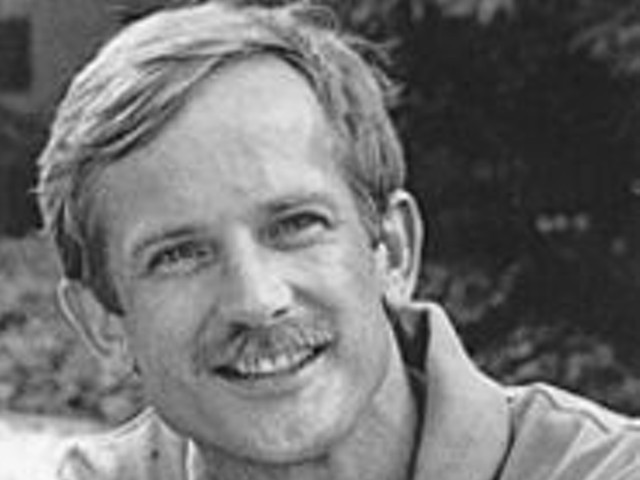By all accounts, Cobb was a real son-of-a-bitch. He took a Machiavellian approach to baseball and life and made no apologies for diving spikes-first into second, home or one of his opponents. He was the first player to use psychology and intimidation as much as his ability and turned what was a gentleman's game into a true competitive sport -- even if it meant being hated by fans, rivals and his own teammates.
Blessing sets the play in the afterlife, where, to dramatize the complexity of his subject, he divides Cobb into three "spirits" -- young, middle-aged and old. The three are trying to make sense of the events of "their" life, arguing over their meaning and even their veracity. The cast is uniformly excellent. Josh Rowan is the charismatic young Georgia Peach, the swaggering, self-confident athlete who plays for the love of the game and who enjoys getting under people's skin. He's still open to the possibilities of life and love, a possibility that has disappeared from the scrappy, bitter Ty of middle age, well played by Joe Hanrahan. Ty seems barely able to control his rage, ready to explode at any moment. He's intent on justifying the ways of his youth, still ready to take a poke at anyone who crosses him, obsessed with building his own legend.
Kevin Beyer, one of our town's most underrated actors, plays the older Mr. Cobb, who wants resolution and peace even if it means whitewashing a lot of his past. Beyer conveys the sadness and loneliness of a man who has spent his life fighting everything, including himself, and who now wonders whether his legacy, in the form of those symbolic spikes that sit in the Baseball Hall of Fame, truly conveys who he is.
In a sort of reverse Christmas Carol, these three spirits are haunted by another -- the memory of Oscar Charleston, a Negro Leagues player who was called the "Black Cobb." Cobb turned down several opportunities to play against Charleston, because, Oscar challenges, Cobb was afraid of being shown up as second-best to a black man. What would have happened had he accepted the challenge? It's a nagging question that will haunt Cobb forever in his self-made hell. Bryan Keith plays Charleston with just the right mixture of petulance, self-confidence and regret, a man whose talent was always secondary to the color of his skin.
There's little plot or story to carry the play, but director William Whitaker does a fine job mining the script for every ounce of drama and humor among the four characters, keeping the conflict alive and the tone bittersweet. The three-quarter thrust set, designed by Donna Northcottt, represents a grassy ballfield, as well as a boxing ring, and makes efficient use of the cavernous St. John Theatre.





